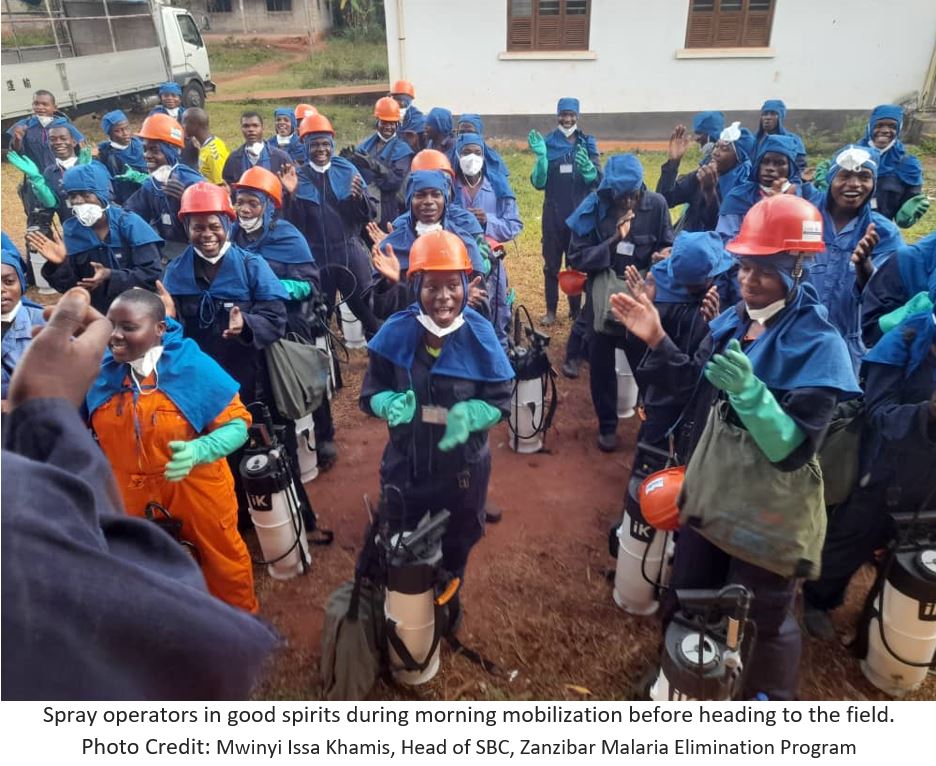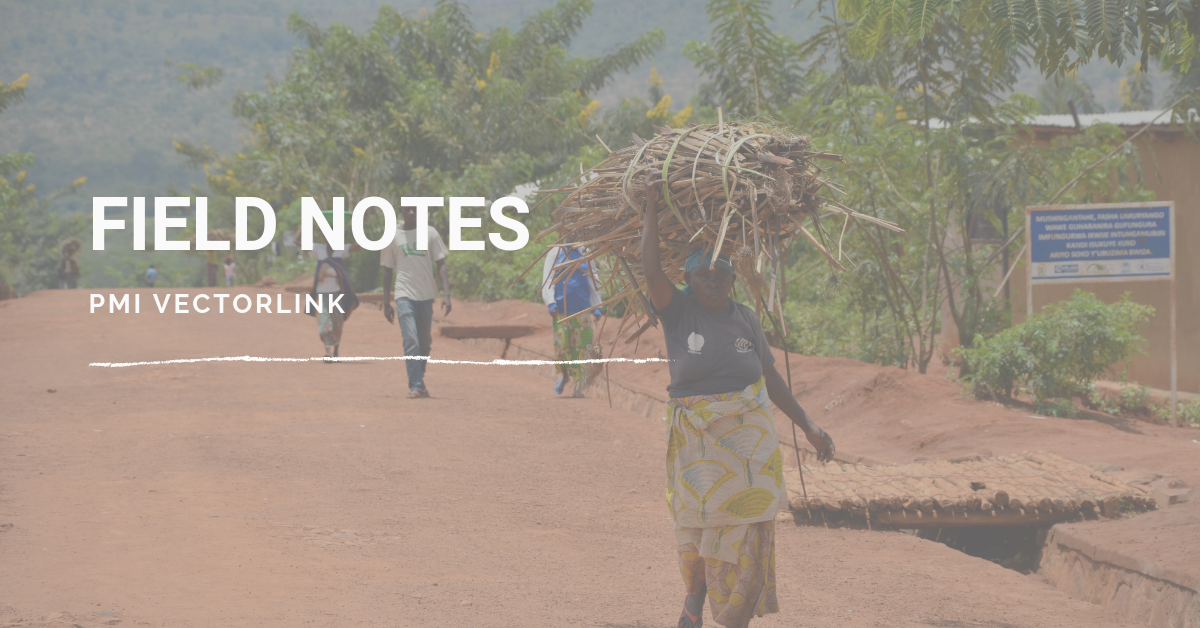 VectorLink Tanzania closed its Zanzibar office in June 2022, handing over responsibility for vector control interventions including IRS to the Zanzibar Malaria Elimination Programme (ZAMEP). In January 2023, due to leftover Sumishield insecticide previously acquired by the Global Fund, ZAMEP decided to implement an IRS campaign, and requested VL Tanzania’s technical support. This week’s Fist Bump goes to VL Tanzania for assisting ZAMEP to implement IRS at minimal cost.
VectorLink Tanzania closed its Zanzibar office in June 2022, handing over responsibility for vector control interventions including IRS to the Zanzibar Malaria Elimination Programme (ZAMEP). In January 2023, due to leftover Sumishield insecticide previously acquired by the Global Fund, ZAMEP decided to implement an IRS campaign, and requested VL Tanzania’s technical support. This week’s Fist Bump goes to VL Tanzania for assisting ZAMEP to implement IRS at minimal cost.
The key objective of this spray campaign was for ZAMEP to gain experience implementing IRS, using members of the Zanzibar National Service (Jeshi la Kujenga Uchumi-JKU) as spray operators, to help reduce operational costs, while still maintaining community coverage and quality vector control performance. ZAMEP hosted a one-day refresher training of trainers and a four-day standard operating procedure training for the JKU personnel.
VL Tanzania provided support on materials and forms quantification, developing the IRS schedule, trainings, the supervision plan, weekly reports, and drafting the end of spray report at the end of the campaign. The team also shipped masks from the mainland warehouse.
To cut down on costs, ZAMEP borrowed vehicles from other agencies rather than hiring their own. Thus, the only cost for transporting IRS materials, distributing insecticides, and moving spray operators was fuel; ZAMEP also engaged in community mobilization rather than bringing in outside mobilizers when feasible. The primary cost saving measure was using military personnel as spray operators. As they were already engaged in military service, ZAMEP did not need to pay them for volunteering to work as spray operators. As backup, national supervisors who were trained by VL Tanzania were available and ready to engage in IRS operations.
The IRS campaign targeted 45,000 structures in the Unguja Islands and started on February 25, ending yesterday, March 9. Available data shows that the spray coverage reached 93%.
According to Dr. Salim Slim, Director of Preventive Services, Zanzibar “the beneficiary communities in Unguja were happy to see the intervention and were accepting the sprayers in their communities. They have urged the government and development partners to continue with this intervention that has saved a lot of lives.”


